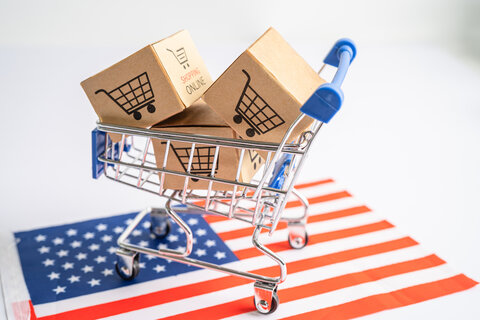Only weeks after the release of a new study quantifying the high cost of Buy American Act protectionism, the Biden administration has decided the law isn’t protectionist enough. At least that’s the logical inference of a recently proposed rule change, which would drastically reduce the number of items exempted from the law due to their lack of domestic availability. According to the White House, the revision would produce the shortest exception list in history.
Passed in 1933, the Buy American Act (BAA) requires federal agencies to purchase supplies from domestic sources. This comes at a cost. By imposing barriers to the purchase of less expensive foreign goods, the BAA ensures the federal government doesn’t always get the best value for taxpayer money. Thankfully, the law features several exceptions, including for those items deemed not domestically available. The Biden administration, however, believes the current list to be far too generous—and is eager to do something about it.
Under its proposed changes, numerous goods ranging from crude oil to castor beans would be removed from the list. The total number of exemptions would be reduced from 109 to 39.
Notably, these proposed removals are not necessarily because the goods have become more available. Indeed, a government filing admits there is “no substantial evidence that there is a major increase in the availability of the articles being deleted.” The administration nonetheless defends the move by citing “evidence that there is capacity for many of the articles being removed,” with “several publications” showing that “for many of these articles there is some degree (emphasis added) of domestic capacity.”
Instead of presuming the items’ nonavailability, the Biden administration prefers that government agencies investigate an item’s availability and then file a waiver request as needed. These added hurdles, the administration believes, should “contribute to a more dynamic, diverse, and competitive domestic industrial base.”
The notion that increased protectionism leads to greater dynamism and competitiveness, however, is comical. Like athletes, industries must compete to become and remain competitive. But the BAA is the equivalent of a training regimen that emphasizes potato chips and binging TV.
Beyond its questionable theoretical basis, the proposed change also suffers from more practical flaws.
The US’s status as the world’s largest producer of crude oil, for example, is cited as justification for removing petroleum, crude oil, and finished products from the non-availability list. But a certain good or commodity’s production in the United States—even in large quantities—does not guarantee it can be easily accessed. For instance, a lack of pipelines as well as the expense and limited number of tankers that comply with the protectionist Jones Act, impede domestic movements of oil and petroleum products.
Besides questions of accessibility, there’s also the possibility that goods produced domestically may not be available in sufficient quantities to meet government needs. Production and availability are not synonymous.
All of this underscores the flaws in the BAA’s logic. Rather than administration officials scouring publications and other sources of information to determine whether goods are available, such questions should be left to markets, prices, and the relevant government purchasing agents. Except for sensitive products related to national security, federal dollars should be put to their most efficient use. Let those in government tasked with acquiring goods seek out the best deal, from whatever source that may be.
That’s good policy in any circumstance, particularly when the federal government is running budget deficits in excess of a trillion dollars.
None of this is meant to suggest that vibrant American manufacturing (particularly as part of a broader economic flourishing) is misguided or an unworthy goal. But protectionism, including the BAA, is a costly and ineffective means of going about it. Instead, efforts to make American firms more competitive and dynamic should center on removing obstacles to their success.
One such approach could be negotiating new free trade agreements. These would benefit US companies—including some of the biggest manufacturing job creators—by reducing both the cost of their inputs and barriers to export markets. The unilateral removal of protectionist measures (such as the aforementioned Jones Act or tariffs on imported steel) would also provide US industry with an additional tailwind.
Improved tax and immigration policy and the removal of regulations that raise the expense of developing new manufacturing facilities (the National Environmental Policy Act offers one example) would similarly bolster US competitiveness.
It’s no surprise that in this election year the White House has sought new executive actions that further perceptions of its commitment to American manufacturing (which, let us not forget, is doing pretty well!). But further tightening protectionist measures is the wrong way to go about it. Instead, greater emphasis must be placed on identifying and removing barriers to American competitiveness. US industry doesn’t need added barriers to competition. It needs to be unleashed.

